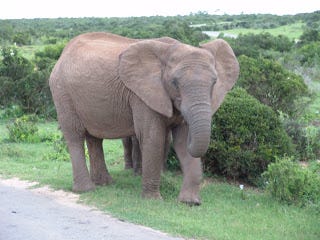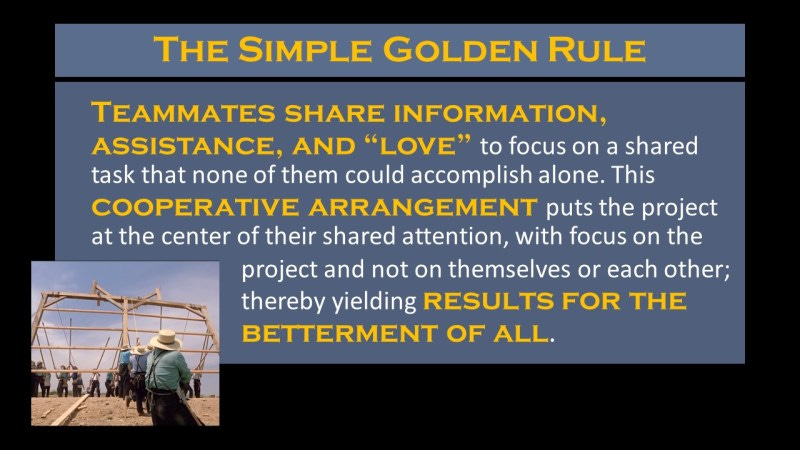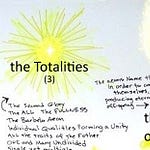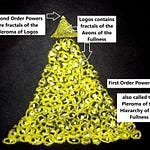Welcome back to Gnostic Insights. Today we’re going to revisit the idea of evolution. You know, religious people are usually mocked by being unscientific for not believing in Darwinian evolution. Well, I’m a highly educated person and I don’t believe in Darwinian evolution. It’s an absurd theory that has never been proven.
My brother, Dr. Bill Puett, is also a PhD. He’s what’s called a professor emeritus, which means that he’s a retired full professor who taught at the university level for a full career. He doesn’t believe in evolution either.
Today we’re going to share with you another conversation that I had just this week concerning evolution with my brother on the telephone. The article that prompted this discussion of ours was published last week on the website called Aeon, and it’s an essay called Why Birds Don’t Buy Bentleys and Why Humans Will Never Fly. And it was written by a scholar named Anton Martino-Truswell, an evolutionary biologist, author, and member of the Sydney Policy Lab and School of Life and Environmental Sciences at the University of Sydney. He writes on human culture and society, evolution, and behavior at his substack, which is called The Village Green.
Bill and I both read his article and came away with a number of criticisms of the article. Mine had to do with the little nuts and bolts of particular claims, but Bill’s observation of the article was profound and overarching from the Gnostic point of view. And so I’m going to share with you Dr. Truswell’s article and then our reaction to it.
Now before I start with that, I would like to remind you that I’ve been writing about evolution for many years, beginning with an article I wrote called A Simple Explanation of Tuskless Elephants’ Super-Quick Evolution that I wrote on November 11th of 2018 on the Simple Explanation blog, and it is still posted there if you want to go to the Simple Explanation blog and read it there. But I covered that article here at Gnostic Insights in October of 2021, and then I repeated it in October of 2023.
So if you would like to read my original articles concerning evolution in detail, I recommend that you go to my GnosticInsights.com webpage and you do a search for the podcast called Gnostic Evolution in the Beginning, and that was posted on October 21st, 2023. And this is a very long and quite detailed theory of evolution that is not Darwinian.
You know, I don’t know why people get stuck on these old theories. Scholars are very habitual, because if you change one of the basic theories, then all of their scholarship goes out the window. Then what are they teaching anymore? They don’t know what to teach; they don’t know what to write about. People would rather harken back to this old theory of Darwin, which is about as outdated as the original evolutionary theory of Lamarck. So I’m inviting you to open your minds today and think of a different way of looking at evolution.
Then I broadcasted a second podcast the very next week on October 28th of 2023 called Evolution and Conscious Design. And again, you can find that at GnosticInsights.com.
First off, let me repeat something out of one of those original broadcasts.
There are just a couple of basic ways you can think about evolution. As commonly taught in school, “scientific” evolution explains the tremendous diversity of life on Earth as lucky mutations that add up to great results. Darwinism promotes the idea that mutations and mechanisms morph into increasingly sophisticated life forms, because genetic goof-ups allow the ones who change to better survive and dominate those who stayed true to form. These lucky mutations keep going in the same lucky direction until there are so many of them that they add up to a new and improved creature. And now they are “evolved.”
Boy, that article I posted in October 21st of 2023, and the transcript to that podcast has lots of illustrations and lots of embedded videos. It’s an excellent discussion of a criticism of Darwinian evolution, and I highly recommend that you go to it.
And now on to this week’s discussion of why birds don’t buy Bentleys. Let me begin by reading some excerpts from the Aeon article so you can hear Dr. Truswell’s thesis.
Culture and its transmission from generation to generation is the defining feature of humanity. It is perhaps the best candidate for the thing that separates us from other beasts. Though there are other species that have been shown to hand down accumulated knowledge, including chimps, who show some evidence for cultural transmission of tool use, no other animal approaches our ability to layer breakthrough upon breakthrough in such a way. And certainly no other animal does it with the conscious intent to lift future communities beyond the achievements that came before. That is a human distinction, if ever there were one.
Why has no other animal evolved this demonstrably useful ability? There are lots of intelligent animal candidates, but most have some straightforward biological reality holding them back. Take the octopodes, famously intelligent and with a rich visual communication system in their incredible instantaneous color changes, but their very short lifespans, coupled with rapid senescence and death after a single mating and clutch of eggs, leaves little time for a parent to hand on knowledge to offspring.
Most fish and reptiles face a similar challenge, though they do not die after reproducing like octopodes, they do tend to produce large clutches of eggs that hatch and mature without much, if any, parental input, relying on these statistics of a very large clutch size to ensure a few offspring reach adulthood. Birds are the real quandary. The philosopher and biologist Peter Godfrey Smith points to birds as the expected place to find another species treading the same path that we humans have, not least because they already come with several of the important adaptations that made cultural sharing possible for us.
Complex brains, long lives, strong parental care of offspring in most species, and robust communication.
With all of those advantages, why don’t birds have complex culture like we do? Why do they not write technical manuals and make art and argue over economic policy? Why do they not have a market economy with not only goods for trade, but luxury goods whose value relies on concepts rather than raw usefulness? Why don’t birds drive Bentleys?
So that’s his setup for this essay. He goes on to say,
Natural selection and by extension evolution, is a force with no foresight. It responds to the challenges that a species is currently facing. It does not and cannot see broad sunlit uplands on the horizon and move toward them. This is because selection is a game of elimination. It happens when individuals die without reproducing or having reproduced less than their neighbors. In each generation, that which is unsuccessful is culled by natural selection and that which is successful endures. Occasionally, a random mutation or fortuitous combination of genes produces a family offshoot that is even more successful than its ancestors and cousins, resulting in higher rates of reproduction or longer lives, which allow more reproduction or higher offspring survival, who in turn reproduce more. The consequences of this is that most evolutionary change must happen as a result of a push rather than a pull. A species’ traits change because they are currently inadequate and being eliminated by selection rather than being pulled toward a better alternative.
So already my Gnostic alarm bells are going off full blast. And then there’s many pages about the evolutionary push and pull and what causes some species to be caught in troughs of non-evolutionary change. Then he begins speaking about birds and that birds is an incredible adaptation.
It opens an entire third dimension of free movement to species capable of flying. First and foremost, this is game changing for a prey animal. Being able to escape a predator by traveling in a direction the predator is incapable of going, namely up, is a huge selection advantage. A flying animal is at risk of consistent predation only from other flying animals, which are fundamentally rare.
Then he goes down another couple of pages and he says that,
Flight is an evolutionary black hole. It is a gravitational well with no bottom, a trait so powerfully effective at improving survival and reproduction that it plunges the species into a well of easy life and high fitness from which there is no escape. Or to return to more conventional evolutionary language, it relieves an incomparable amount of selection pressure that might drive a species to alternative traits.
So basically, he’s saying that once birds evolved flight, they stopped evolving traits that would cause them to adapt better or to form culture. Quoting again,
Everything that is true about flight’s incredible selection benefit is true about human culture. Bipedalism that frees up hands to make machines and to write comes at the cost of evolving odd long feet and an upright posture that causes back pain and makes childbirth dangerous. And of course, four limbs hosting handy hands become unsuitable for evolving into wings for flight. Intelligence, sociability, and many of the other traits we rely on for our cultural abilities are expensive in energy and survival terms. In evolutionary terms, that means they need to be providing a lot of benefit to be worth that cost. In order for that to be the case, there has to be a lot of room for improvement. There has to be a lot of evolutionary pressure. Down at the bottom of the black hole of flight, the pressure is just too low for the trade-offs to be worthwhile.
Humans being slow, flightless, hairless, clawless apes had a huge amount to gain by evolving the tools of cultural transmission. Birds flying, living long lives of relative ease do not feel the same pressure. It is probably the case that our cultural abilities are also a black hole in evolution.
Everything that is true about flight’s incredible selection benefit is true about human culture. We have also fallen down into an impossibly steep slope of selection to arrive at the incredible complexity of human life today. [Then he says,] I cannot fathom what set of circumstances would cause us to evolve away from this complexity.
Okay. Well I can. So that is the end of quoting from his article, which if you want to read in its fullness, you can find at aeon.co/essays/why birds don’t buy Bentleys and we humans will never fly. The link’s in the transcript to this episode here.
So this article prompted a long discussion between my brother and myself that again I happen to be capturing to share with you today. So let’s get to it.
[Cyd] Okay, now we’re recording. Well, hello, Billy.
[Bill] Hi, Cyd. I want to talk with you about that bird article– Why birds don’t buy Bentleys.
Yes. And I thought you did a great job of introducing your criticism of that particular article. So I’m thinking, go ahead and go ahead and review your criticism and all that, you know, and then I’ll, we’ll interact. I have some ideas, obviously.
[Cyd] Well, I tell you, before I review my criticisms, would you like to give the Reader’s Digest version of what the article was proposing?
[Bill] Okay. Well, yeah, Reader’s Digest, yes. The article is a hardcore evolutionary article, so all organisms have evolved to the point they evolved to, and for many of them, they’ve evolved into a corner. And if they’re in a corner, they can’t get out of it.
[Cyd] Oh, right. And the article says, they call it a valley, a gravitational well.
[Bill] Right. So birds have gotten to the point, you know, where they can fly. Okay. And here we are, we won’t be able to fly as human beings. So we’re down in those arenas there. And it was trying to describe from an evolution perspective, why they can’t get out.
[Cyd] Oh, because it had to do with culture. The question was, why do birds not drive Bentleys? In other words, human beings seem to be the only creatures on the planet that have evolved a culture, where they have social order, and they invent things, and they do things like agriculture and manufacturing and things like that. And birds don’t need to do that because they can fly. So what needs do they have? I guess, mainly it was suggesting that humans evolved culture and whatnot in order to escape predators, in order to be able to breed and pass on their genes. And birds didn’t have to do that because they could just fly away from predators.
[Bill] Wasn’t that his basic idea?
[Cyd] That’s the basic idea. Right.
[Bill] And how you respond, you made the point, well, he’s mistaken about organisms, they do have culture. And then you went on to describe, four examples.
[Cyd] Oh, go ahead.
[Bill] No, no, go ahead.
[Cyd] Okay. So for example, his basic premise that only humans have culture isn’t true. Because for example, insects have a lot of culture, I would say, ants, bees, and termites, especially, they communicate obviously, in great detail. They farm–ants actually farm aphids to eat them. And they breed them. So they farm and eat them.
Obviously, ants, bees, and termites build great structures, huge cities that they live in. And, and of course, they have the culture of warfare, they build armies, and they go to war for whatever purpose they have with others of their kind.
And tools, I would say that they do use tools. They said humans were the only ones that use tools. But that’s clearly not true. Because, for example, birds—crows use tools. Crows can use sticks, shapes sticks into probes to go down into termite hills and anthills in order to fish for ants and termites. So they are able to construct tools for those kinds of purposes. And birds, all birds, construct—they make their nests, they choose just the right kind of straw and just the right kind of sticks, and they decide where it’s going to be a safe place to hang it. So they do a lot of, I would say, construction with tools.
And so that was the easiest one. But I also would refute the notion that animals don’t have culture, because I would say that domesticated animals, of course, I’m particular to cats and dogs, but dogs are extremely successful in the, even in the manner, evolutionary manner that the author talked about where he defined success as the ability to thrive and proliferate with good adaptations. And dogs have done that tremendously well. Yes, with some help from the humans, pushing this and that with their breeding, but still the animals have adapted to our culture. And I would say they have human culture. They understand us, they can understand our words. They’re not just trainable and to order them about. I know that my dogs think and evaluate any command I give them. They certainly think and evaluate whether that’s a good idea or not. And I’d call that culture. I’d say they plugged into human culture rather than merely extending the wolf culture. But of course, wolves have culture too. It’s crazy to say that wolves don’t have a society. Okay.
[Bill] That’s right. No, that’s great. That’s right on the point.
And, what you’ve been describing, the hens and the dogs and the birds and what have you, is that these are describable, but I will bet that a huge number of beings, organisms, so forth, have their respective cultures that we haven’t defined out. We haven’t clicked in. We’re trying to put it in human terms, right?
[Cyd] Right.
[Bill] Well, they have their own shtick. They know what they’re doing.
[Cyd] Right. And we just can’t recognize it.
Oh! And what about schools of fish and flocks of birds? The way they move all together and whatnot is incredible. We can’t do that. So, they’re more evolved in that sense.
[Bill] I’d even pick out one of your favorites—slime molds. Talk about cooperation. Oh yeah! So his basic point, you know, again—he’s a hardcore evolutionist. He has to explain it, but he can’t give the movements his meaning. They didn’t become this because they needed to be that. He’s trying to describe it as survivability. More of that kind, and so forth. From his point of view, that’s where it’s coming from.
So, let me take another tact here. Well, not another tact—what we call the Gnostic position. Okay. I mean, Gnosticism technically doesn’t talk about evolution per se, not that kind. What we call the Second Order, of course, all Second Order, they’re from the Aeonic—their Aeonic inheritance.
So it’s all there. In fact, we talk about evolution as a time issue going over it. Well, there’s no time. It’s all done. It’s already done. So, we use the notion of time because that’s the way we relate in this world. But, so evolution requires time.
[Cyd] Oh! I see. Evolution requires time. That’s a good point because you’re saying it’s all there. There is no time. So you can’t have evolution based upon time. Oh, wow. That’s profound. That’s basic, isn’t it? Yes.
[Bill] So, so yeah, so back to, so what we have is intelligent design. Yes. That’s the Aeonic and it’s right from the beginning.
[Cyd] Right, right, right, right. And the Tripartite Tractate, the way it describes the Second Order Powers coming to Earth, it’s very cool because it said that we were sent down from the smallest to the largest, each with our own jobs to do. And so it’s not that things are evolving from bacteria and then becoming more and more complex and larger and larger aggregates. It’s just the tiny guys come in first to make the base. It’s the hierarchical concept, not that the little guys are less evolved or less important, but you know, you can’t have the fish until the plankton come in. So the plankton have to come before the fish, so to speak, as far as being, as far as appearing.
[Bill] With our understanding of time, yes. Yes. So we’re describing it that way. Yeah.
[Cyd] Okay, but listen. Your understanding of no such thing as time—that everything is already there… You’re believing in that static jello universe I talk about basically. So, well, then how does that appear? How does it appear that the small things come first and then the larger and larger things appear the way they seem to in our earthly “evolution”? How is that if it’s a static universe?
Picture these cherries as completely filling the universal space with all possible worlds, already existing.
[Bill] Well, because that’s the “second economy” in this Fallen existence and we’re connected to the “material.” And so we’ve working within this arena, which is a time arena as far as our feeling of it.
[Cyd] Okay. So that’s the second economy—it appears to have time.
[Bill] That’s right. And it’s organized by the Demiurge. We’re connected into the, again, that connection is, we’re experiencing “time” that way when in fact the first economy is timeless and the third economy will be no time. Right. So it’s just the second economy that appears the way it does.
[Cyd] Right. Okay. Oh, okay.
So that’s from the big bang, so to speak, up until the Second Coming [of Christ] in the collapse or after the Second Coming in the collapse, that is, that’s the second economy that we live in. That’s our apparent universe that we live in. And it does seem to have time, although you and I were discussing the other day, the difference between time and sequence.
[Bill] Yes. Yes. We would already say sequence is understood in time, you know, that that’s the way we make sense of it in this fallen existence here. But it’s only sequence. Right. Again, the consciousness goes through the jello universe.
[Bill] Yes.
[Cyd] Yeah. And in the first economy, everything that comes to appear to us in the second economy is already preexistent. That’s what the Fullness of God is—it’s all of the preexisting forms that will ever come to be… You and I, we, I keep getting hung up on that.
[Bill] It doesn’t have consciousness in life.
[Cyd] But it is somehow preexistent in the first order because it’s part of this creation. And everything that’s part of this creation was imagined, obviously, in the Fullness of God. Was it not? Well, it’s all, it’s conceptual. We’ve talked about that before.
[Bill] Alright.
[Cyd] It’s conceptual. Right. Okay.
[Bill] So let me go to your point. Fullness is fullness.
[Cyd] Which means it’s everything.
[Bill] It’s everything. And it’s done. In the third economy, we’re back to fullness.
[Cyd] Right. We’re back to fullness, but we’re the third economy and we’re not back to the first economy, which was before we all came around and had our second economy experiences. We get to take those memories and associations with us into the third economy.
[Bill] Right.
[Cyd] Nice.
[Bill] So that’s the basic point, Cyd, you know—my basic response to that article. On one level, you’ve explained even in an evolutionary sense how he’s wrong.
[Cyd] Yeah.
[Bill] Okay. So that, you know, we’re taking his assumptions there, and then we take the next step to the Gnostic position.
[Cyd] That’s great, Bill. In fact, you’re pulling it together in that more profound sense, I believe. Seems to make my little quibbles with the article irrelevant, basically.
[Bill] No, it’s not irrelevant. You’re responding as if he’s sitting there. You’re responding to him. He’s not going to the Gnostic side. You’re responding to him. How would he respond, now that you’re at that particular technical level. Okay. I’m at your level now. How do you explain that?
Cyd: Right.
[Bill] Yes. I thought that was very good.
[Cyd] Here’s something else to say about the article. In the article, the author said that it’s unfathomable—he used the term unfathomable—to imagine human culture de-evolving, because we’ve gone down into this evolutionary well of perfection, basically. And I also quibbled with that, so I wasn’t just quibbling about the insects and the dogs and cats and the birds.
It’s not true. I can fathom society de-evolving in that if we lose our technical aspect, which has become so huge since the industrial revolution, if we go back to pre-industrial revolution, our current culture will de-evolve back to prior to the industrial revolution.
And how does that happen? Well, that’s very easy. An electromagnetic pulse, plasma ejection from the sun, wiping out all of our satellites or blowing up our electrical substations, even beyond people with malfeasance in their hearts, let’s say, guerrilla warfare against the electrical grid to plunge us all into darkness. That could be on someone’s mind. And that’s all it’s going to take. We’re just going to come back. We’re just going to go back down to pre-electricity and our culture will de-evolve to the dark ages immediately.
[Bill] Right. Well, again, you’re responding at his level. That’s right. At his level. Right.
[Cyd] No long range communication, roving bands of marauders, and so on.
[Bill] That’s dystopic history. That’s science fiction, right?
[Cyd] That’s exactly right. Right. Right. It’s the dystopian end. But the good side of that will be AI will die as well.
[Bill] Yes. Well, we’ve said before in the past, you know, I think small community—tribal communities—interrelate with each other. That’s a greater future than huge nation states or globalism, and all the rest of that.
[Cyd] Right. I once read somewhere that really any person can only keep track of 200 people. And so 200 is actually the biggest size a village should be if you want to know everyone—if you want to know and love your neighbor.
[Bill] Well, that’s the point. You can hold hands easier and be with others in that larger sense. (referring to the Simple Golden Rule) So that may be a healthier direction. Now, of course, you might respond and say, “well, we evolved to this state we’re in because…” but he can’t say because it benefits humanity. That’s not evolutionary talk. Evolution doesn’t take place because it needs to go somewhere.
The Simple Golden Rule is the Aeonic pattern of cooperation
[Cyd] Right. Because it’s already there.
[Bill] Well, not even that in his evolutionary sense. He’s not Lamarckian. Lamarck said that giraffes grew long necks because they needed to get the food in the trees. Right. You know—they grew like that. But Darwinian evolutionary theory is that some were born with long neck and they survive better.
[Cyd] Yes. Yeah. Well, so actually, then, you know, when we’re talking about guerillas crashing the electrical systems of the Earth… those could be Luddites. It might be Luddite-type guerillas purposely plunging the Earth into a dark age in order to restore humanity to its…
[Bill] Well, that’s a, you see, that’s a conscious attempt by a Second Order.
[Cyd] Right. That would be a non-Christian, non-Gnostic way of returning. But it’s not just necessarily through malfeasance and guerilla action of hating countries in order to plunge them into the dark ages. It could actually have a noble aspiration to bring us back to a Luddite age of true pre-industrial revolution.
[Bill] Well, again, a general point—isn’t the mistake of socialism? You can have people directing they want socialism in order to bring about equanimity and equality for all people as a beneficial end.
[Cyd] Right. So they have good notions. I mean, their heart may be pure. Well, as if!… except for the big cats at the top that are going to reap it all, right? Yah. So, well, it’s an interesting discussion, Bill.
[Bill] (laughing) Well, it was a joy. I love going places with you. That’s the thing. You start out with something and then we evolve out.
[Cyd] (laughing) Oh no, wrong word. No, no. And then we swim to another cherry.
[Bill] Thank you for having me. I look forward to doing more of these.
[Cyd] Love it! I’m all for it. Let’s do it!
Well I hope you found this discussion of evolution stimulating and I hope that you are prompted to reconsider the efficacy of the entire concept of Darwinian evolution from a Gnostic point of view.
And again I repeat in order to do that the best you really should return to my prior two broadcasts about evolution. I’ll put the links in the transcript to this episode. Thank you for spending this time with me.
God bless us all and onward and upward.
















Share this post